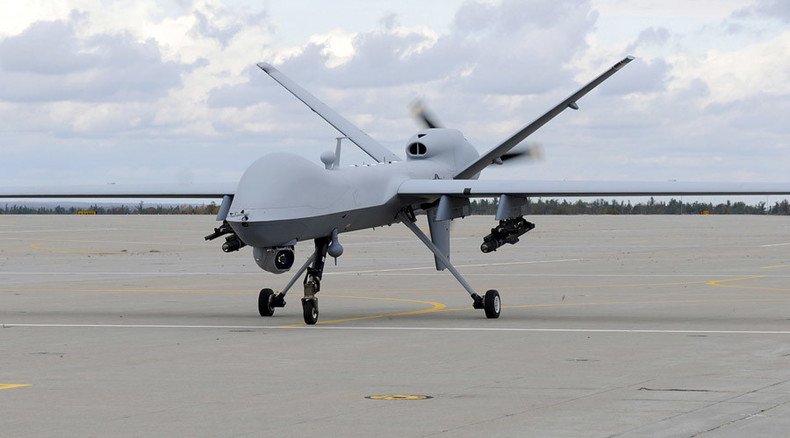Blanket drone policy? Attorney General refuses to clarify UK targeted killings

Britain’s Attorney General has refused to answer questions from MPs over whether he gave the UK government ‘blanket authority' to carry out drone strikes in countries Britain is not officially at war with.
Jeremy Wright QC said he could not divulge details of the advice he gave to ministers regarding the UK’s drone strike policy.
He was responding on Monday to questions from MPs on the Justice Select Committee, who questioned him on the UK’s adoption of US-style targeted killings.
Human rights charity Reprieve criticized the Attorney General’s refusal to provide details about Britain’s drone strikes and called for greater transparency.
Richard Arkless, a Scottish National Party (SNP) MP, asked the Attorney General if “the advice that you’ve delivered to the government in relation to these drone strikes, will that be conducted on a case by case basis or are you giving them blanket authority to do this again if the circumstances arise?”
Wright answered: “That’s another nice try … but I can’t I’m afraid go into the detail of the advice that I gave.”
Reprieve Legal Director Kat Craig said the Attorney General’s silence on the subject was “alarming.”
“It is alarming that the Attorney General does not feel the need to tell MPs or the public even the most broad details about the UK’s kill policy. All we currently know is that the prime minister thinks he can authorize the killing of anyone, anywhere, without any parliamentary or judicial oversight.
“The UK appears to be going down the US route of a counter-productive, secret drone war which does more harm than good.
“When even US generals are warning that the drone program causes more problems than it solves, it beggars belief that the British government is adopting the model in full. We need a real debate, and for that we need the government to come clean about this policy,” she added.
Prime Minister David Cameron authorized the targeted killing of British jihadists by an RAF drone strike in August.
The Islamic State militants killed in the attack are believed to be Ruhul Amin, 26, from Aberdeen, and Reyaad Khan, 21, from Cardiff. No civilians were reported to have been killed in the airstrike.
Cameron justified the killings as an act of self-defense under article 51 of the United Nations charter. The PM said he consulted with the Attorney General about the legality of the attack before authorizing it.
Legal experts say the drone strike signals a shift in British defense policy.
International law professor Philippe Sands QC told the Guardian: “It appears that the UK is adopting a broader and more expansive vision of what the right of self-defense means – which connects to the approach taken by the US in its ‘global war on terror’.
“It appears to be a departure from established British practice in the use of force in self-defense.”












